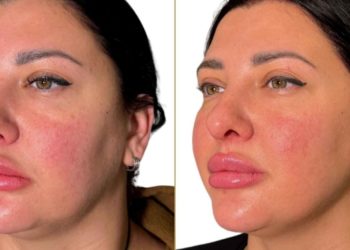Your body begins to behave differently above the age of 40. You may feel fatigued, sleep may be more challenging, or your mood may flip suddenly. This is part of the natural aging process, especially for women.
This is why being aware of what you eat becomes so essential. Food is no longer just food; it can help you feel stable, strong, and peaceful. And with so much going on inside your body, a little extra support from something like a good menopause supplement day and night can make a real difference, especially when you’re dealing with things like night sweats or low energy.
Let’s break it all down in a simple way.Some food habits and small shifts can help you feel better every day.
Eat Real Food as Much as You Can
Look, life gets busy. But if you can stick with simple, real food most of the time, your body will thank you.
Try to eat stuff that doesn’t come in a shiny packet with ten ingredients you can’t pronounce. Think:
- Fresh fruits (bananas, berries, apples)
- Colorful veggies
- Oats, brown rice, or whole wheat bread
- Eggs, beans, chicken, or fish
This kind of food gives your body lasting. Plus, it’s full of the good stuff, fiber, vitamins, and minerals.
Watch Out for Foods That Stir Up Inflammation
Some foods quietly mess with your body. They can make you feel bloated, tired, or “off.” This happens more often after 40, thanks to hormone changes.
Try to eat less:
- Sugar (especially the hidden kind in drinks and sauces)
- White bread and processed snacks
- Fried stuff
Instead, choose calming foods like leafy greens, olive oil, salmon, and berries. These help settle your system and make it easier to deal with mood swings or hot flashes
Water Isn’t Boring, It’s Power
Many women feel low on energy and don’t realize they’re thirsty. Seriously. Water is seriously good for your brain, your skin, and even your sleep.
Aim to drink water all day, not just when you’re thirsty. Keep a bottle near you, and sip often. Add a slice of lemon or a few mint leaves if you want flavor.
Build Your Meals with Balance in Mind
You don’t have to count calories or track every bite. Just try to keep your meals balanced. Here’s a simple way to build a plate:
- Half your plate = vegetables
- One quarter = lean protein (like chicken, tofu, or eggs)
- One quarter = healthy carbs (sweet potato, brown rice)
- Add some healthy fat (like nuts or avocado)
This mix helps keep your mood stable and your stomach full for longer.
Don’t Skip Meals
Skipping meals might seem like a shortcut, but it usually backfires. You feel tired, maybe even cranky, and then you grab the first sugary snack you see.
Eat regular meals, if they’re small. Breakfast, lunch, and dinner with one or two light snacks can keep your energy steady.
Use Supplements the Smart Way
If food isn’t doing enough, it’s okay to bring in a little help. A quality menopause supplement day and night can give you extra support, especially if sleep is hard or mood swings are intense.
The “day” formula usually helps with energy and focus, while the “night” formula helps you wind down and sleep better. Supplements can be a game-changer When used with good food and daily habits. Just pick a trusted brand and ask your doctor if you’re unsure.
Sugar Sneaks In—Keep an Eye Out
Sugar hides in so many foods. It might be in your cereal, salad dressing, or that “healthy” granola bar. And after 40, your body doesn’t like sugar as much as it used to.
It can affect your sleep, mood, and weight. Try to read food labels and cut back where you can. Natural sugars in fruit are okay in small amounts.
Take Care of Your Bones and Heart
Once your estrogen levels drop, your bones and heart need extra love. Calcium and vitamin D are super important, and so is magnesium.
You can find these in:
- Milk or calcium-fortified non-dairy drinks
- Leafy greens
- Nuts and seeds
- Fish with soft bones (like sardines)
If you don’t get enough of these from food, a basic supplement might help. But food should come first when possible.
Every Body Is Different—Listen to Yours
There’s no one-size-fits-all plan. What works for someone else might not work for you. Pay attention to how your body feels after meals.
Do certain foods leave you tired? Does coffee mess with your sleep now, even if it didn’t? Keep track. Your body is constantly sending little messages.
Be Kind to Yourself
Don’t feel like you need to fix everything overnight. Start small. Add one new veggie to your plate this week. Drink one extra glass of water. Swap your sugary snack for a healthier one. It doesn’t have to be perfect; it just has to move you in the right direction.
Final Thoughts
Smart eating after 40 isn’t about keeping tight diets or avoiding everything. It’s about meeting your body’s demands in a way that feels good and works for you. Healthy foods, plenty of water, balanced meals, and a daily dose of a reliable menopause vitamin can help you feel stable, strong, and in control again. This stage of life may be full of energy and delight, especially if you care for yourself well.












































































